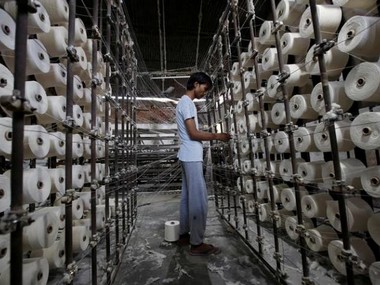Mumbai: The Reserve Bank of India’s (RBI) special loan restructuring scheme for stressed but standard Micro, Small and Medium Enterprises (MSME) accounts may give some relief to the lenders on their bad loan recognition and credit costs, says a report. The move announced by the monetary authority on Tuesday to small ticket standard MSME loans up to Rs 25 crore, will also improve credit flow to the sector which has been constrained due to lenders’ cautious and tight approach to the segment, India Ratings said in a report on Thursday. The central bank had on Tuesday allowed a one-time restructuring of loans to MSMEs with an aggregate exposure, including non-fund-based facilities of banks and non-banking lenders, of up to Rs 25 crore, provided the account is stressed but standard. [caption id=“attachment_4309131” align=“alignleft” width=“380”] Representational image. Reuters[/caption] It can be noted that opening such a window for the politically crucial MSME sector, which was badly hit by the note-ban and GST rollout, leading to closure of tens of thousands of units and loss of jobs, was one of the key reasons for the friction between the poll-bound government and RBI headed by Urjit Patel, who on 10 December quit in a surprise move. This demand was pushed by S Gurumurthy, the RSS ideologue and government nominee on the central board of the RBI, at the 23 October and 19 November board meetings and is one of the key decisions taken by the present governor Shaktikanta Das, who on Wednesday said he would be meeting the representatives of MSMEs and non-banking financial companies (NBFCs) next week. The RBI had on 12 February, 2018 done away with all the then existing debt restructuring schemes for every segment of borrowers and made stress recognition for even a one-day default. “The restructuring scheme for MSMEs could provide some respite to banks and non-banking financial institutions on non-performing asset recognition and thereby credit costs that they could have witnessed over 2019-2020,” the report said. The report, however, said the restructuring scheme may encourage some MSME borrowers, who are otherwise operating satisfactorily, to opt for the scheme and thus impair the credit discipline.
The MSME segment comprises about one-tenth of banking system credit and around one-fifth of the retail credit outstanding of NBFCs, the report estimates. As of mid-December system-wide bank credit stood at of Rs 92.87 lakh crore.
The RBI’s scheme will be applicable for loans that are in default but standard as on 1 January, 2019 and has to be implemented by 31 March, 2020. Almost 50 percent of the total outstanding of Rs 23 lakh crore will be eligible for the recast. In the Fiscal Stability Report (FSR) released on Monday, the RBI had highlighted continuing stress in the MSME sector where NPAs for the micro segment (exposure less than Rs 1 crore) increased to 8.7 percent in June 2018 from 7.9 percent in March 2016 and that for the small and medium-sized enterprises (SME) segment (exposure of Rs 1-25 crore) jumped to 11.5 percent from 9.8 percent. From a lenders’ perspective, while non-banking companies and private sector banks have seen a marginal decline in NPAs from the segment in June 2018 over March 2018, state-run banks have seen an increase to 15.2 percent from 14.3 percent, the FSR report showed.


)

)
)
)
)
)
)
)
)



